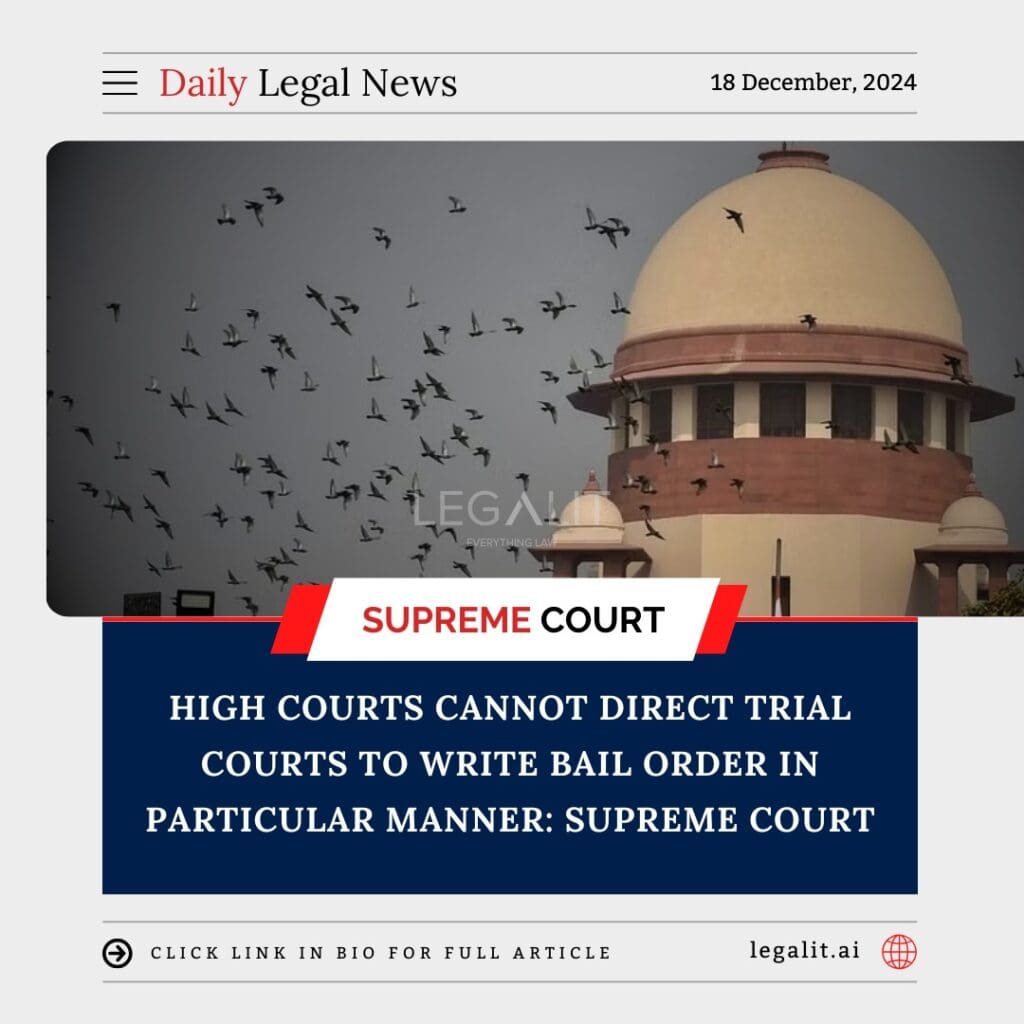
The Supreme Court of India has ruled that High Courts cannot issue directions to trial courts on how to write bail orders in a particular manner. This decision comes in response to a petition that sought clarity on the procedural requirements for bail orders issued by trial courts.
Background:
The case arose when the High Court directed a trial court to issue a bail order in a specific format, prescribing the manner in which it should be structured. The petitioner argued that such directions could undermine the independence of trial courts and disrupt the uniform application of legal principles in granting bail.
The Supreme Court emphasized the need to respect the trial courts’ discretion and responsibility in delivering justice, stating that each case must be decided based on its merits rather than prescribed formats or templates.
Key Arguments:
- Petitioner’s Stand:
- The petitioner argued that the trial courts should have the discretion to grant bail in a manner suited to the facts and circumstances of each case.
- Imposing a rigid structure for bail orders could lead to procedural rigidity and potentially undermine judicial independence.
- Respondent’s Stand:
- The respondent, representing the High Court’s position, argued that the prescribed format would bring uniformity and consistency to bail decisions.
- They believed that the order format would ensure that all necessary factors were considered and documented.
Supreme Court’s Observations:
The Supreme Court, in its ruling, highlighted the importance of maintaining the trial courts’ independence. The bench observed that while the High Courts have supervisory jurisdiction over trial courts, they cannot prescribe the manner in which orders are written. The court further emphasized that judicial decisions should be based on the facts of the case and not be constrained by externally imposed guidelines.
Legal and Policy Implications:
The ruling holds several implications for the legal system, including:
- Ensuring that trial courts retain their discretion and independence in issuing bail orders.
- Maintaining the flexibility of judicial decision-making, allowing for varied approaches to different cases.
- Upholding the principle of fairness and impartiality in the trial process.
Broader Context:
The issue of bail orders has been a subject of significant debate in India, particularly in the context of the judicial process. The debate centers around ensuring that bail decisions are made with due consideration to the rights of the accused while maintaining the integrity of the legal system.
Conclusion:
The Supreme Court’s ruling on bail orders reinforces the independence of trial courts in making decisions based on the merits of each case. This decision ensures that bail orders are not bound by any prescribed format, emphasizing flexibility and fairness in the judicial process. The ruling serves as a reminder of the need for courts to act in accordance with legal principles while also preserving their autonomy.